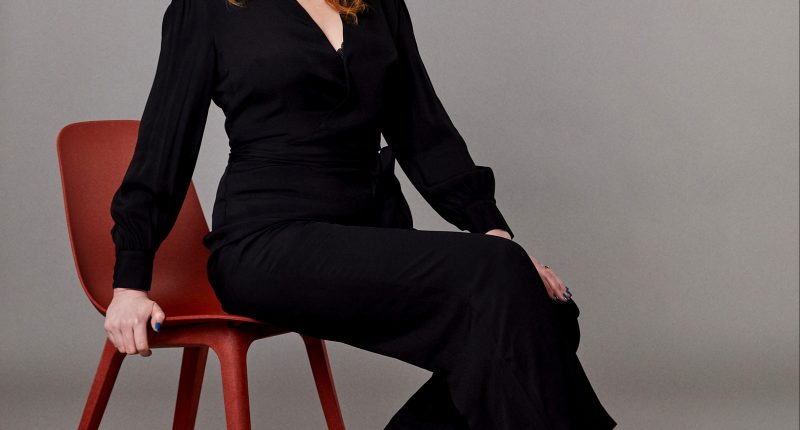STOP me if this rings any bells for you. For much of my adult life, money was something I couldn’t think about without feeling physically sick.
It ran through my fingers in a way it never seemed to with friends, and not earning much only went so far to explaining why.
I never seemed to have enough for anything, not for a holiday or to save up for Christmas.
I was baffled when a close friend managed to stash £50 a month over several years to have enough to take a group of us to a swanky London restaurant for her birthday – yet I couldn’t save even 5p.
My savings account existed but no sooner had I moved money into it, I’d be taking it back out to get out my overdraft or pay my credit card bill.
I was glued to financial advice forums, yet carrying out the tips left me muddled.
READ MORE IN MONEY
I attempted the popular trick for paying off credit cards, where you move the balances around to take advantage of interest-free periods.
Instead of paying the debt off I ended up with multiple cards, which meant more to keep track of.
That led to forgotten payments and fines, plus the interest-free periods flew by, meaning I ended up with more debt than before.
A diagnosis of ADHD at the age of 37 in 2020, started to make me realise why I found money so difficult.
Most read in Money
And I’m not the only one.
A 2022 survey for the bank Monzo estimated that living with ADHD costs people £1,600 a year due to difficulties managing their money.
I would put that amount far higher: think of the forgotten subscriptions that roll on and on, repurchasing items you forgot you had, or missed appointments.
For those affected like me, you might kick yourself for being “scatty”, “absentminded”, or “stupid”.
I lost seven sets of keys in one year – I threw one lot out with the shopping.
Even when medicated, you aren’t exempt: last summer, I left my own glasses on a wall and drove 80 miles in my prescription specs before I realised. Cha-ching!
We assume that medication will ‘fix’ our ADHD problems, and certainly, medication is a key part of treatment.
It has been intensely valuable to me in regulating my mood and reining in my focus so I’m concentrating on one thing at a time rather than twelve.
However, we need to learn new, healthy strategies through behavioural coaching, and to accept the mistakes of the past through therapy – both of which can be difficult to access.
I wrote my book, It’s Not a Bloody Trend: Understanding Life as an ADHD Adult, to help support the many men and women who have either recently been diagnosed or are waiting for an assessment for ADHD.
I interviewed men and women who have been diagnosed as adults, and experts in the field to share their knowledge across the major areas that untreated ADHD can impact, of which finance is a major issue.
Some people with ADHD also have dyscalculia, a neurodiversity that is to numbers what dyslexia is to words.
Money runs through the heart of ADHD: people with untreated ADHD struggle with impulsivity, self-motivation and self-control.
My own money issues were exacerbated by one of my coping strategies – alcohol – which I thought helped me relax in stressful situations.
But it also meant that I would overspend on rounds and drag people off to karaoke bars, insisting that I would pay.
Not everyone uses booze to excess, but people with untreated ADHD are very prone to addictive behaviour for dealing with boredom and difficult feelings.
Even without alcohol, which I gave up in 2019, I would spend to get a dopamine hit: if I wanted to celebrate something, I might go to posh shop Liberty and treat myself to a snazzy (and expensive) candle for the house.
Sometimes, my hyperfocus and impulsivity would team up, and then I might spend weeks researching a new interest and then go and spend £150 on a box of new products that I didn’t even need.
Financial issues are present in different ways. It might come with not being able to sustain a career or having the patience to deal with corporate culture.
Sleep disorders commonly overlap with ADHD, and arriving at work late or not at all has an obvious impact: a 2008 study of over 7,000 workers in 10 countries found that people with ADHD lost an average of 22 working days a year compared with those without.
Studies of economic burden show that ADHD costs society hundreds of billions of dollars each year, worldwide: a shocking impact for something that some people don’t believe is real.
ADHD: signs and symptoms
ADHD comes under the “neurodivergent” umbrella term, which encompasses autism, dyslexia and Tourette’s among others.
With each, the brain differs from a “normal” brain but does not mean the person has a lesser brain.
ADHD behaviours tend to fall into one of two types: inattentiveness, and hyperactivity and impulsiveness.
Some people experience a mixture of both, which is often called attention deficit disorder (ADD).
In children and teenagers, hyperactivity stands out and is more commonly seen in boys, while inattentiveness presents more in girls and is harder to spot.
In adults, hyperactivity is less common, and symptoms are more subtle, making them tougher to identify.
Signs can include:
- Trouble concentrating
- Being easily distracted
- Difficulty staying organised
- Impatience and restlessness
- Struggling to sit still
- Leaving tasks unfinished
- Putting an unusual amount of effort into staying on top of things
- Low self-esteem, mood swings, struggling to deal with stress
- Being impulsive with money, sex, etc.
Forgetting to pick the kids up from school once, or not being able to sit through the latest Netflix hit series, doesn’t mean you have ADHD.
Henry Shelford, co-founder of ADHD UK, says: “The question to ask is: Is it having a significant detrimental impact on my life?”
Dr Alison McClymont adds: “If you have a pattern of struggling with relationships or work – maybe you constantly miss deadlines, feel misunderstood by your boss and colleagues or are crippled by the anxiety of schedules and routine – you should seek professional help.”
Speak to your GP who may refer you to a specialised ADHD centre.
People who grew up only knowing the stereotypes of ADHD, in the forms of Bart Simpson perhaps, or Dug the squirrel-obsessed golden retriever from the Pixar film Up, are often shocked to recognise the signs in themselves.
Women especially are increasingly being assessed after their children have been diagnosed and finding the questions are hitting home.
Times of hormonal change, such as pregnancy or perimenopause, are major triggers for this as ADHD symptoms like brain fog, memory issues, and executive dysfunction can show up magnified: not early-onset Alzheimer’s, as so many women worry, but undiagnosed ADHD.
Meanwhile, men are being missed for not presenting as the stereotype.
It’s estimated that ADHD affects 3-4% of the adult population, with the majority of cases going undiagnosed.
In recent years, there’s also been an uptick in women accessing help for the disorder.
There is no official data from the NHS or private clinics on the number of people being formally assessed for the condition.
But waitlists for diagnosis reveal years-long waits for assessments, with the longest in Hereford and Worcestershire standing at and astonishing 10 years.
It’s not surprising that so many women have slipped through the ADHD net.
Women with the disorder often struggle with their self-worth, because they find aspects of life harder and feel like it’s their fault – easily done if you have kids and are prone to putting your needs last.
ADHD was also only formally recognised in the UK in 2000, so lots of adults missed their chance to be diagnosed in childhood.
With so few girls getting diagnosed in adolescence, many women go well into late adulthood not knowing they have ADHD.
By that point, other factors can continue to get in the way of a diagnosis.
There are so many factors that affect how ADHD shows up: everyone’s symptoms and life experience shows up differently.
Financial coach Clare Seal gained her financial expertise the hard way when she and her husband had to pay off £27,000 with no assets or safety net to help.
They managed this in two years, and Clare documented this on her anonymous @myfrugalyear Instagram account, before qualifying as a financial coach – and being diagnosed with ADHD.
The difference between the time she succeeded in paying off her debt and all the times she managed before was that she kept going.
“Sometimes, you have to persevere with the same thing that has worked a little or imperfectly and try to get better at it,” she told me.
How to tackle your finances
Clare recommends digital tools like Snoop, Emma and Starling for staying across your accounts, as well as giving yourself permission to follow your interests.
“Find a way to motivate yourself that works for you, and the second it stops working, find something else to replace it rather than letting your interest dwindle,” she said.
Snoop and Emma are free to download and both have paid-for versions with extra features.
Starling’s budgeting features are free to use when you have one of its current accounts.
Budgeting can be a significant challenge unless it is drilled into you from a young age – James, 47, balances his books every weekend because his mother raised him to do so.
Al, 41, went to rehab at 20, by which point her family had already bailed her out financially to about a hundred thousand pounds.
Her mother had died when Al was 16, and left secret debts of £200,000, as well as instilling in her daughter that if you have a bad day, you go shopping.
She told me: “I can write a budget, and it looks great, but it may as well be in Japanese for all the good it does, and that’s really difficult as a forty-one-year-old.”
Automating as much as we can is crucial for keeping things under control.
Direct debits and standing orders help to keep money for bills out of sight and out of mind.
Apps like 1tap receipts let you take a photo of a receipt, or email it to yourself and log it, so you don’t have to try and keep track of an envelope that you might realistically end up losing.
It’s free for up to 100 scans per month and a paid-for version offers unlimited uploads.
For those in salaried rather than freelance work, you can’t beat the app You Need A Budget (YNAB).
It costs $8.25 (£6.55) a month, or $99 (£78.54) a year
Hyperfocus on setting it up once (there are lots of very helpful YouTube videos for this) and it will seamlessly track your incomings and outgoings so that you always know where your money is and what it’s doing.
It’s such a helpful app that I’m happy to pay the fee and use it even when I’m on relatively short-term contracts – if you have a regular, reliable source of income, I think you just can’t beat it.
Just as knowledge about ADHD is advancing, so too are the tools that are helping us to, if not master our finances, then at least stop it from being as much of a disaster as it may have been in the past.
The advent of banking apps has been a game-changer for me: I can see my business, personal, and joint accounts at a glance, and even a dashboard of my accounts with other providers.
Customisable design lets me have the app looking pleasing enough that I enjoy checking it – frivolous, yes, but it makes finance feel like a part of me rather than a punishment.
I have savings pots for particular areas of household and personal life, and the tax pot in my business account automatically skims off a set amount from every incoming payment to ensure I’m on top of what I need to pay throughout the year.
At 41, I feel like a baby when it comes to my finances – but at last, I understand why so that the next 41 years can be different.
Being “bad” at money doesn’t mean being unsuccessful: many well-known names with ADHD, now and in the past are entrepreneurial.
Walt Disney, who showed many signs of ADHD, had his brother Roy to run the business and financial side of their company so he could focus on the creative.
READ MORE SUN STORIES
Businessman Vishal Karia is one of the richest men in Britain worth a whopping £98million, having founded cosmetics shop Affinity Fragrances in 2016, and puts his success down to ADHD.
With the right support, ADHD brains can thrive.
Money and mental health
MONEY problems, whatever the cause, can be a trigger for anxiety or depression and vice versa.
If you are struggling, charities such as StepChange (stepchange.org.uk, 0800 138 1111) and National Debtline (nationaldebtline.org, 0808 808 4000) can register you for a government scheme known as Breathing Space.
It stops creditors from contacting you or taking action against you for 60 days and interest is paused (this is in England and Wales only).
If you’re receiving mental health care, you can ask your treatment team to refer you for Mental Health Crisis Breathing Space, which lasts as long as your treatment plus 30 days.
Here are some tips for coping with money and mental health issues.
- Check if you’re entitled to any benefits at mind.org.uk and turn2us.org.uk.
- Log your spending and mood patterns in a diary to better understand your triggers. Free apps like eMoods can help.
- Delete shopping and gambling apps. Don’t save card details on websites.
- Set a regular time to tackle bills and plan a relaxing activity for afterwards. Keep documents organised in one safe place.
- Moneysavingexpert.com has a free mental health and debt guide and mentalhealthandmoneyadvice.org has tools and advice.
- Call the Samaritans day or night for free on 116 123 or visit samaritans.org.
- Contact for help: Mentalhealthandmoneyadvice.org












